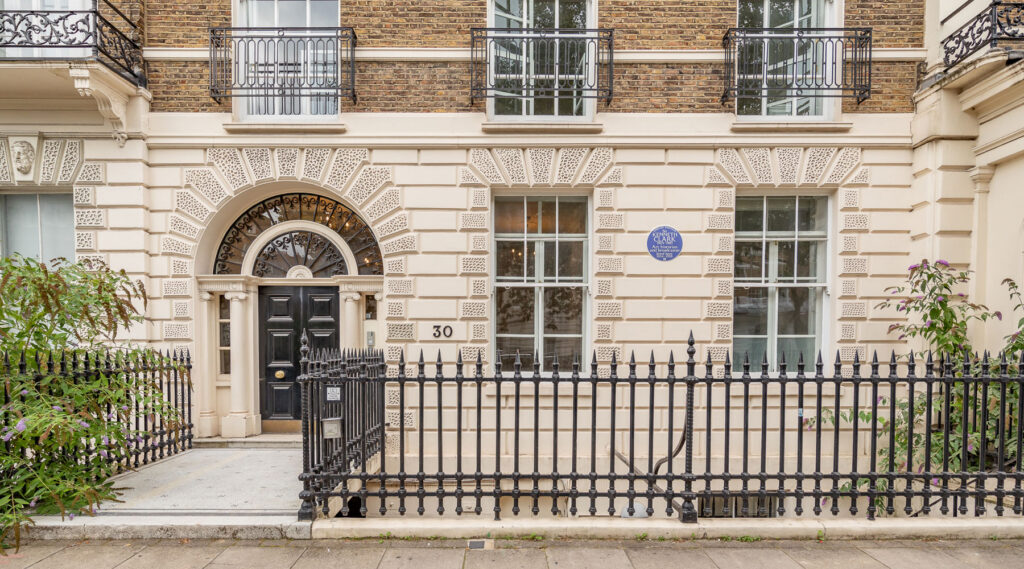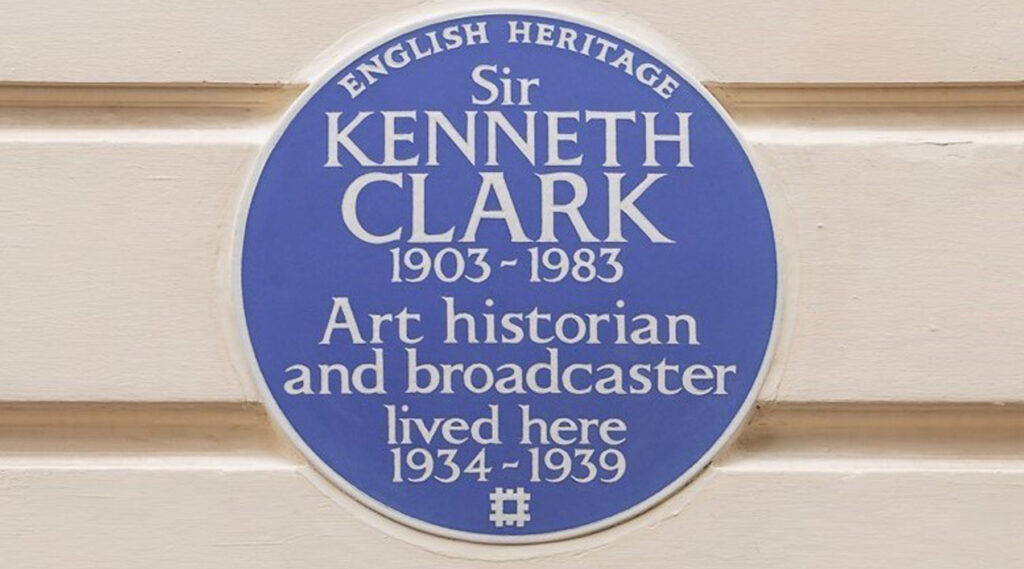A blue plaque has been unveiled to celebrate Sir Kenneth Clark, the art historian and broadcaster best known for the landmark 1969 TV series Civilisation. The plaque has been placed on his former home, 30 Portland Place, which is conveniently just around the corner from the BBC’s Broadcasting House.
He lived here during the 1930s when he became Director of the National Gallery and was knighted. The impressive-looking building became a hub for artists and fashionable society during this time, with Sir Kenneth and his wife Jane hosting glittering parties attended by guests including Winston Churchill and Vanessa Bell.
Although popularly famous for the Civilisation television series he was so much more than a TV presenter.
Sir Kenneth Clark headed up several of Britain’s leading cultural organisations including the National Gallery, the Arts Council of Great Britain and the Independent Television Authority. He saved some of the nation’s most valuable pieces of artwork during the Second World War by evacuating over 800 paintings to rural Wales, was responsible for many of the Ministry of Information’s wartime films, and used his position to convince the government to offer wide scale support to the arts. He also sponsored emerging artists including Henry Moore and Graham Sutherland.
Later, in 1966, David Attenborough, at the time the controller of BBC2, had an idea for a series on ‘the history of all the great things man had created’, through which to launch colour TV in Britain, and invited Clark to develop, write and narrate it.
Kenneth Clarke’s eloquent and deeply personal documentary series exploring the cultural heritage of the western world, from the collapse of the Roman Empire until the birth of modernism, was groundbreaking television when first broadcast by the BBC in 1969.
It was a huge success in both the UK and USA, propelling Clark to stardom.
At the time, the idea of a TV series that would take 2 years to complete, and involve over 100 locations across 13 countries, at a time when overseas travel was still a luxury, was unheard of — and its success enabled the many nature and history documentaries that followed and helped to make the BBC famous for the quality of its productions.
Clark continued to make TV programmes into the 1970s. He died in 1983, aged 79, and is buried at Hythe, Kent.
The full list of Blue Plaques by English Heritage is here, and English Heritage has published a guidebook to them all here.









You can watch the whole of Civilization on iPlayer for free in HD (that was my idea!) – https://www.bbc.co.uk/iplayer/episodes/b00dtjbv/civilisation
He was my uncle, Jane being my father’s sister.
There’s a lot more to say about him, but not in an eulogy…
I well remember the Civilization series and treasure the accompaning book. Sir Kenneth Clark, an inspirational man who deserves to be honoured with a blue plaque.